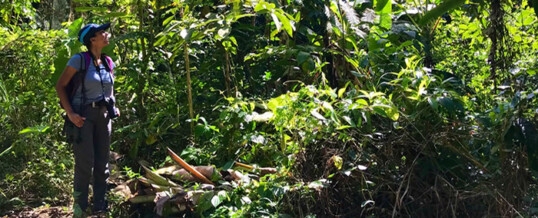Birding While Black
June 4, 2020

FROM BACKPACKER MAGAZINE | JUNE 4, 2020
Amber Wendler looked the part, mostly. She had the binoculars hanging around her neck, she had her eyes cast upward toward the tree canopy where birds were flitting about, and she had her ears tuned to the sound of their songs.
So when the question came from another person who was up to the same thing, it caught her by surprise: “Are you a birder, too?”
Wendler recalls no ill will from the asker, a white person, but it did reinforce a feeling that Wendler and other Black birders often feel in the outdoors. “In those spaces there aren’t other Black people,” she said. “It’s easy for Black people to feel they don’t belong in outdoor spaces.”
With birding in particular, participation skews white. According to a 2011 study by the Fish and Wildlife Service, 93 percent of birders are white with 24 percent participation across the demographic. Among the Black population, the participation is 7 percent.
The Fish and Wildlife service pins some of this on a lack of access to outdoor spaces. Those living in large cities participate at 12 percent, whereas those in rural areas bird at 22 percent (the average national participation rate is 20 percent).
But the feeling is similar in other outdoor sports. “I’m almost always the only black person in a group of people going hiking,” Wendler said.
It’s with this gap in mind that an online group of Black scientists (@BlackAFinSTEM on Twitter) started #BlackBirdersWeek, a campaign to draw attention to Black people who bird in light of a recent event in New York City’s Central Park where a white woman called the police on a Black birder.
“I’ve never seen so many other people who look like me in nature,” said Wendler, who is a first-year PhD candidate in biology at Virginia Tech. “Increasing the visibility of Black people in nature is important. It’s important for Black kids to see other people who look like them and know they belong.”
For many people, it’s hard to understand why wild spaces are de facto “white spaces,” or that access to the outdoors is limited by anything beyond a simple desire to go into them. But even those people who do go into nature often find themselves feeling like or being treated like outsiders. As Wendler said, “These events happen many times and it just happened to be caught on video this time.”
That’s what @BlackAFinSTEM is hoping to challenge. “There’s a great need to increase visibility of Black people in nature and make spaces welcoming and safe for Black people and bring to the forefront systemic racism in the outdoors and amplify Black voices in the outdoors.”
Importantly, Wendler said, the burden to fix systemic issues like this can often fall to those who are most affected by them, but Wendler said addressing systemic racism everywhere in society requires everyone’s participation.
We can start, Wendler said, by listening to Black people and their experiences, then seeking to be an ally to Black people and “make outdoor spaces welcoming and safe.”
Follow Amber Wendler’s twitter feed @amberwendler.
Written by Casey Lyons




